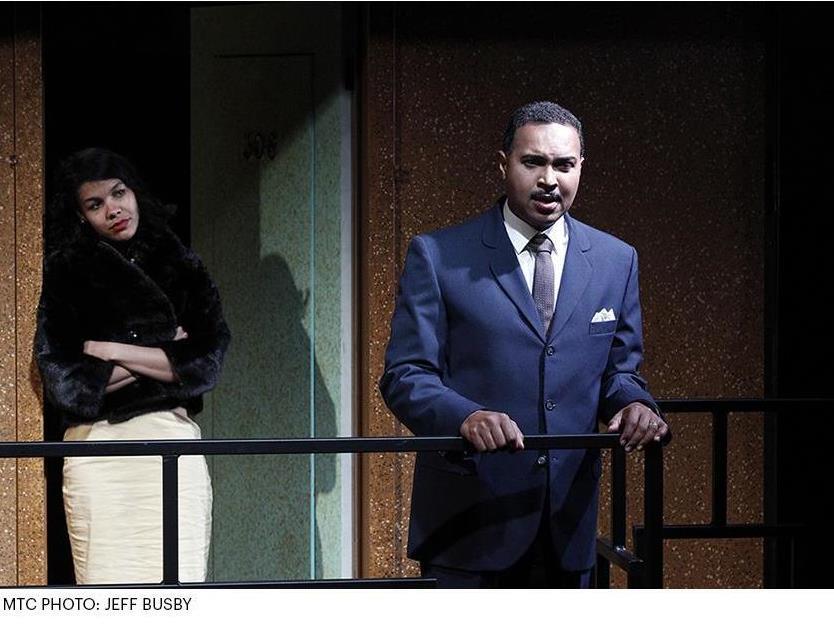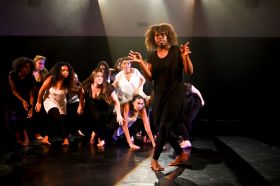It is true to say that Martin Luther King has, over the decades, achieved mythic status and few would disagree, but until seeing playwright Katori Hall’s preachy and overwritten The Mountaintop, I always thought the label was metaphor. While King is indeed an inspiration to both blacks and whites alike, his story has been told so many times that it is hard to find an angle new enough to keep the audience hooked. The Mountaintop, (which snatched the Olivier Award), does indeed find a new hook. Only in this case, I do not think it is such a good thing.
The play itself follows King on the last night before his final “mountaintop” speech and his closing passage that seemed to foreshadow his own death. This is the premise the play hangs on. What starts with a promising opening scene, showing a slightly paranoid side as King checks for bugs and listening devices, when he is interrupted by Zaraha Newman’s Camae, a fast talking maid with whom he bonds over cigarettes. Okay, here’s the new hook I was talking about: the play takes a bizarre turn into Touched by an Angel territory as Camae reveals herself to be an angel sent by God to get him ready for death and thus, the inspiration for “the mountaintop” is born. Olivier Award or none, without any discernible clue or hint that this might be possible, this twist seems entirely unearned and so left-field it is almost laughable – Angels in America this ain’t. From there, the play becomes preachy (and at times downright patronising) as the message of equality and civil rights is delivered with the subtly of a train crash. I doubt Hill could really make up her mind whether she was writing a drama, docu-drama or fantasy so she just threw all of them onto the table.
That is not to say that the The Mountaintop is without merit. Hill’s dialogue is witty, her take on King is original – a man able to fight injustice on mass, but terrified of the inevitable – and the there are moments that contain some genuine poignancy and humour – she enjoys her strange set up. Unfortunately this production falls flat in delivering these little goods Hill has to offer.
Director Alkinos Tsilimidos, who helmed last years Red, seems to be lost on how make the finer details work here. Pacing between the actors is inconsistent and sometimes appears to be at odds with what the script demands, along with some strange blocking choices and out-of-date proscenium arch acting out to the audience – one wants to say: “speak to each other, not to me!”.
Although Newman’s energy is unstoppable, her characterisation/skill seems to be forced rather than natural, not to mention playing for laughs rather than allowing the comedy of the piece work for itself. Stylistically she seems to be acting in a different piece altogether. Bert LaBonte is however sensational as the great man tackling the prospect of his own death. He flows between fear and paranoia, to passion and intimacy naturally and with ease and is a joy to watch.
Honours aside, the oddness of the concept was lost on me. The mixing of genres is unfocused, confused and proved, in the end, alienating. Martin Luther King remains a monumental symbol of equality and peace, but with this peace, we only get the symbol, not the man.
Rating: 3 stars out of 5
The Mountaintop by Katori Hall.
Melbourne Theatre Company
Fairfax Studio, Arts Centre Melbourne
November 6. Season ends December 18.
Duration: 95 minutes, no interval.





